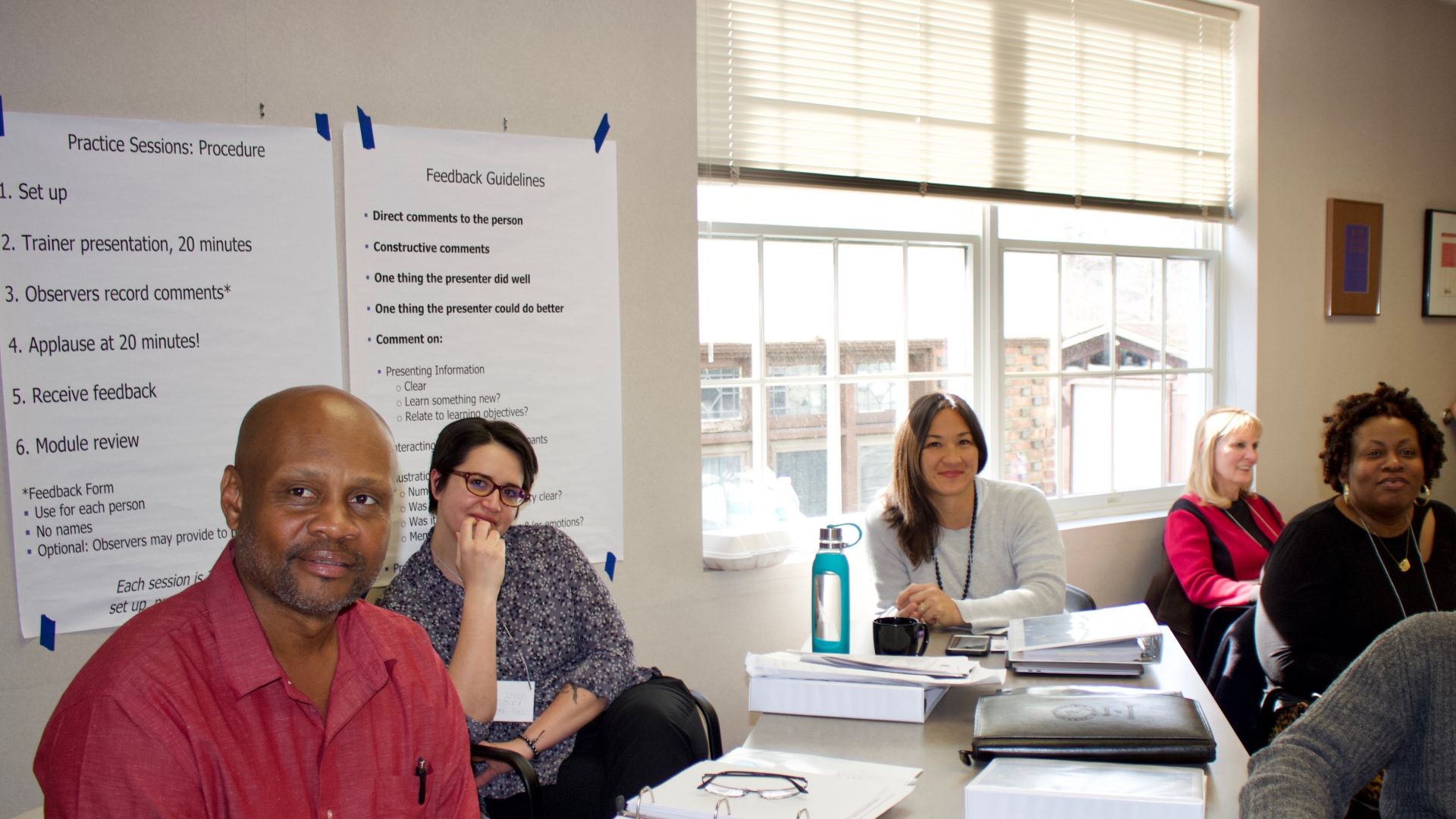There is growing recognition that trauma can play a significant role in criminal legal system involvement. Integrating a trauma-informed approach can decrease recidivism, increase safety, and promote and support recovery among people with criminal legal system involvement.
However, it may not be possible to have every person in your agency learn about trauma in a Systems Mapping and Training Center-facilitated training event. There may be a limited budget or competing schedules and priorities. Your agency requires a systematic approach where experienced trainers can deliver the content you need in the timeframe that works best for you.
Our Solution
How Being Trauma Informed Improves Criminal Justice System Responses Train-the-Trainer expands your agency’s capacity to develop trauma-informed responses. This event trains experienced trainers on how to deliver our How Being Trauma Informed Improves Criminal Justice System Responses curriculum. This curriculum is for criminal legal and behavioral health system professionals who want to increase their understanding of trauma, create an awareness of the impact of trauma on behavior, and develop trauma-informed responses within their agency.
The Train-the-Trainer (commonly known as the TTT) is an opportunity for your agency to increase its trauma-informed response capacity. Once your trainers have successfully completed the TTT, they are certified to deliver the trauma-informed responses training to other criminal legal system and behavioral health professionals within your agency or jurisdiction. Graduates of the training program report a greater understanding of the impacts of trauma and changes to their work and approach to individuals in contact with the criminal legal system (Krider et al., 2024).
Our Model
The 2-day Train-the-Trainer event teaches participants how to deliver the How Being Trauma Informed Improves Criminal Justice System Responses training. During the TTT, the full, 4-hour training program is delivered, with TTT attendees participating in the event. Following the training delivery, our expert facilitators review the training design and tools, train participants in facilitation skills, and engage participants in practice sessions.
Trainers are guided through the sessions in a supportive manner, with many opportunities to practice what they have learned and receive feedback from both their peers and our expert facilitators. In addition, trainers will learn about additional resources for trauma-informed responses to enhance and broaden their learning.
At the end of the event, trainers are provided with the login to our online resource center, where they can download all the materials they need to deliver the How Being Trauma-Informed Improves Criminal Justice System Responses curriculum. Our portal also provides mock trainings, explanations of how to use the provided materials, and supplementary resources to ensure that trainers can deliver the program successfully and with fidelity to the model.
Participants
This highly interactive training is tailored to experienced criminal legal system trainers in the following domains:
- Community corrections officers (probation, parole, and pretrial services)
- Court personnel
- Healthcare providers (physical and behavioral health) who work with adults who are involved in the criminal legal system
- Human service providers who work with adults in contact with the criminal legal system
- Jail/prison staff, including corrections officers
- Law enforcement officers
- Peers and peer-led groups
- Reentry staff
- Professional educators and others who work with adults who are involved in the criminal legal system
Impact in the Field
Certified trainers share the impact of the training on their agencies and work:
Follow-Up Assistance
Follow-up technical help is not always needed after your training event. But some jurisdictions find additional assistance with post-training strategic planning. If your community wants more support, the Systems Mapping and Training Center is here. The Center can host follow-up meetings, including facilitated strategic planning sessions, give guidance and resources, or connect you with topic experts. These follow-up opportunities are offered on a fee-for-service basis if the need comes up.
References
Krider, A. E., Ihara, E., Hope, E. C., Noether, C. D., Parker, T. W., & Desmarais, S. L. (2024). A mixed-methods evaluation of a program for promoting trauma-informed responses among criminal legal system professionals. International Journal of Forensic Mental Health, 23(4), 390–402. https://doi.org/10.1080/14999013.2024.2311409



